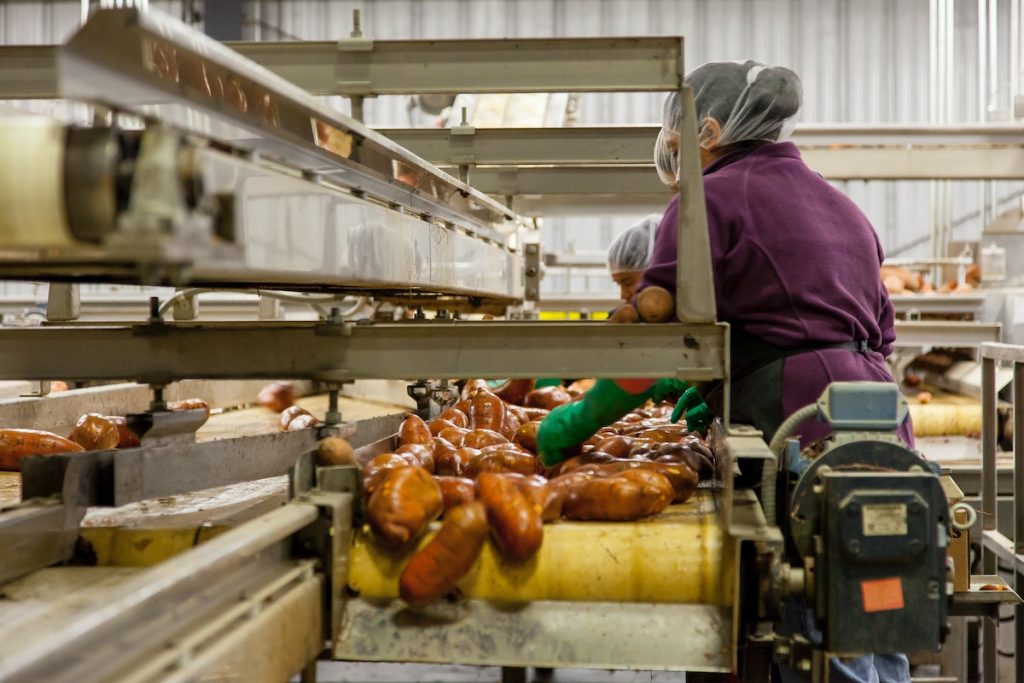- Thorough cleaning and inspection of machinery are essential for food-processing operations.
- Maintenance and repair of machines increase their lifespan, reduce downtime and increase efficiency.
- Daily pre-operation maintenance should be done to identify any issues before starting production.
- Scheduled maintenance, replacement parts, quality assurance testing, and upgrades are needed for successful operations.
- Investing in new machinery helps protect against potential losses due to contamination or other hazards.
Machinery is an essential component of any successful food-processing operation. Not only does it help to streamline the production process, but it can also ensure that the highest quality products are produced with maximum efficiency. Research shows that having well-maintained and properly functioning equipment can increase productivity by up to 30%.
The right machinery is crucial for producing high-quality products and helps reduce costs associated with waste, contamination, labor, and energy consumption. However, keeping your machines in good and functional condition will require an entire workflow in and of itself. Since your operations depend heavily on these machines, you must prioritize them, which you can achieve through the following processes:
Proper Cleaning and Inspection

Proper cleaning and inspection of machinery are essential to any food-processing operation. Cleaning helps remove dirt and debris from machines that could otherwise lead to contamination, while inspecting ensures that the equipment functions correctly. This will help to reduce the likelihood of devices breaking down or malfunctioning, which can cause significant downtime in production. Additionally, regular inspections can help identify issues before they become more serious problems.
It’s crucial to thoroughly clean your machines daily with appropriate cleaning agents and methods. Be sure to check all areas where most contamination occurs, including hard-to-reach places like hoppers and conveyor belts. Also, use color-coded cleaning tools and supplies when working around high-risk regions such as those that handle raw proteins.
Inspections should also be done daily to check for any signs of wear and tear or other problems. Look for frayed belts, broken parts, loose screws, and oil leaks. If you notice anything unusual, you must address these issues immediately. By investing in regular maintenance and inspections, you can ensure your machines function correctly and efficiently.
Maintenance and Repair
Regular maintenance and repair of machines are essential to ensure their smooth functioning. Proper care helps increase the lifespan of machinery, minimize downtime, and extend its efficiency. It also ensures that the highest quality products are produced with maximum efficiency. Here are some strategies you can use to keep your equipment in top shape:
Pre-Operation Maintenance
Before commencing operations, each day, inspect each machine thoroughly to check for any flaws or malfunctions. Please take note of any irregularities and address them immediately before starting the production process. Additionally, examine components such as bearings, chains, sprockets, etc., and replace them if necessary.
Scheduled Maintenance
Establish a regular schedule for preventive maintenance and repairs of machines. This will help you keep your equipment in the best condition and ensure they are always well-maintained. Scheduled maintenance should include regular checks on components, such as motors, blades, guards, etc., to identify any signs of wear and tear or damage.
Replacement Parts
Replacing parts when needed is essential for ensuring that machines remain efficient throughout their lifespan. Keep a stock of critical replacement parts available to quickly repair any damage or malfunction without disrupting production processes. Air compressor filters are among the most vital components to keep on hand as they can be easily damaged or worn down due to prolonged use.
Quality Assurance Testing
Quality assurance testing should be done regularly to check the performance and safety of each machine before it is used for production purposes. This will help reduce the risk of unexpected issues that could lead to contamination or other safety hazards.
Replace or Upgrade Machinery

Regularly inspect your equipment to check for any signs of wear and tear. If you notice any issues that can’t be fixed or if the machine is obsolete, you must replace or upgrade it immediately. This will help ensure the safety of your food-processing operations and protect against potential losses due to downtime.
Of course, you must consider your budget when investing in new machinery. Still, replacing or upgrading machines regularly is better than risking contamination or other issues.
Final Thoughts
Following these steps ensures that your machinery is always in good condition and functioning correctly. This will help maximize efficiency, minimize costs associated with waste, labor, and energy consumption, and produce the highest quality products with maximum safety. Proper equipment maintenance should never be overlooked as it is essential for keeping operations running smoothly and safely. If your machines are safe to use, your business will always remain productive.

